Both NC Democrats and Republicans have primaries in the governor’s race. What to know
- Oops!Something went wrong.Please try again later.
- Oops!Something went wrong.Please try again later.
- Oops!Something went wrong.Please try again later.
North Carolina’s governor’s race has been getting national attention for months because of its swing-state status, as well as the contrast in candidates and resulting big money flowing in.
The expected primary winners heading for the general election are Republican Lt. Gov. Mark Robinson and Democratic Attorney General Josh Stein.
But it’s not over yet. They both face competition within their parties.
”A Robinson vs. Stein match-up in the North Carolina gubernatorial election would be perhaps the perfect illustration of American politics at this particular moment,” Chris Cooper, a political science professor at Western Carolina University, told The News & Observer.
“Given the stakes and North Carolina’s recent history of competitiveness, we can expect big money, big attention, and, if the past is any guide, big drama.”
Here’s what you need to know about the race for North Carolina governor before you vote.
The role of the governor in NC
Current Democratic Gov. Roy Cooper is finishing up his second term, and North Carolina limits governors to two consecutive terms. He has not yet said what he’ll do next. Cooper endorsed Stein, a longtime friend and political ally, in the governor’s race.
North Carolina elects the governor and lieutenant governor separately, and Democrat Cooper’s entire tenure in office included a Republican lieutenant governor. The roles of lieutenant governor and attorney general can, but don’t often, lead to the governor’s mansion. Cooper was attorney general before becoming governor, and former Democratic Gov. Bev Perdue was lieutenant governor before becoming governor. Cooper’s predecessor, former Republican Gov. Pat McCrory, was the mayor of Charlotte before becoming governor.
The office of governor doesn’t come with as much power as it once did. Republicans moved to limit some of Cooper’s powers before he even took office. Then, upset over Cooper instilling a long series of restrictions during the coronavirus pandemic, they took away some of the governor’s power to issue executive orders during a state of emergency. And just last year, they limited the number of people that the governor can appoint to regulatory boards and commissions.
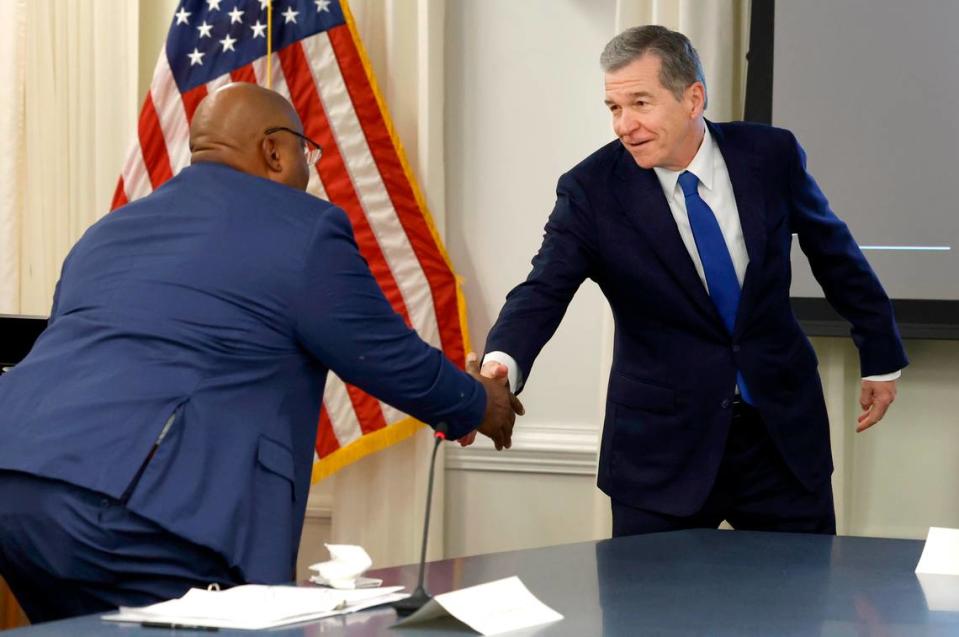
The Democrats
▪ Josh Stein
Stein, who is finishing his second term as attorney general, has a huge lead over his main Democratic opponent in terms of money, polling and endorsements. He is the Democratic establishment pick, and his many endorsements range from Cooper to the ACLU of North Carolina to an influential Black voters PAC. Stein ran the state’s Consumer Protection Division when Cooper was attorney general.
Stein is an attorney from Chapel Hill and served in the state Senate before becoming attorney general, where he has focused on fighting the fentanyl crisis, suing the Trump administration and pushing for consumer protections.
In his campaign speeches, he’s talked about the need to defeat Robinson.
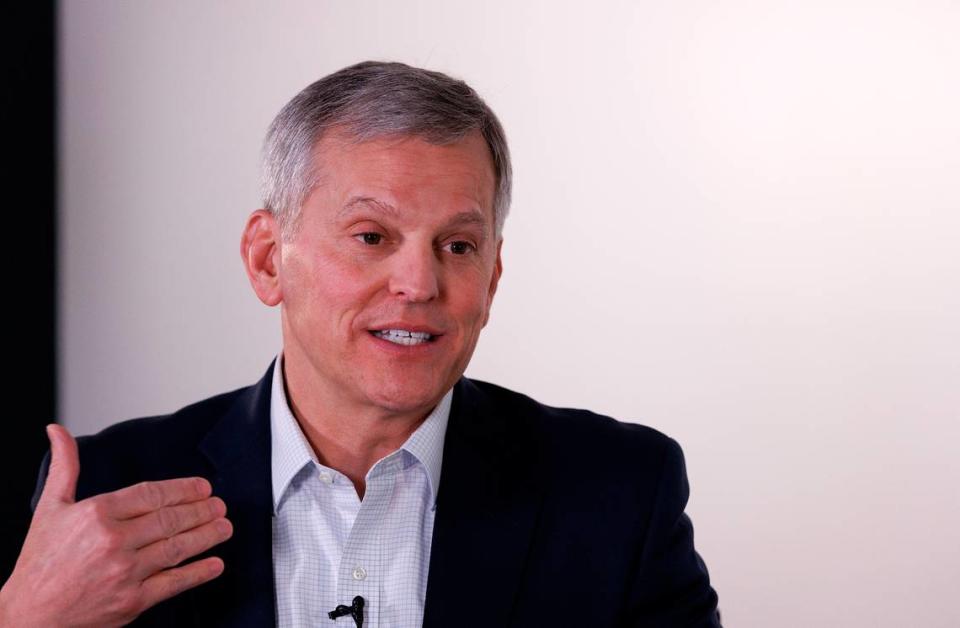
Democrat Josh Stein talks Cooper, Robinson and the race to be NC’s next governor
▪ Mike Morgan
Morgan is the long-shot candidate, partly because he got into the race so late and has raised so little money. It wasn’t until September, a week after he stepped down from a long career in the courts capped by a term on the state Supreme Court, that he announced his run.
Morgan received a new endorsement in late January from the Progressive Caucus of the North Carolina Democratic Party.
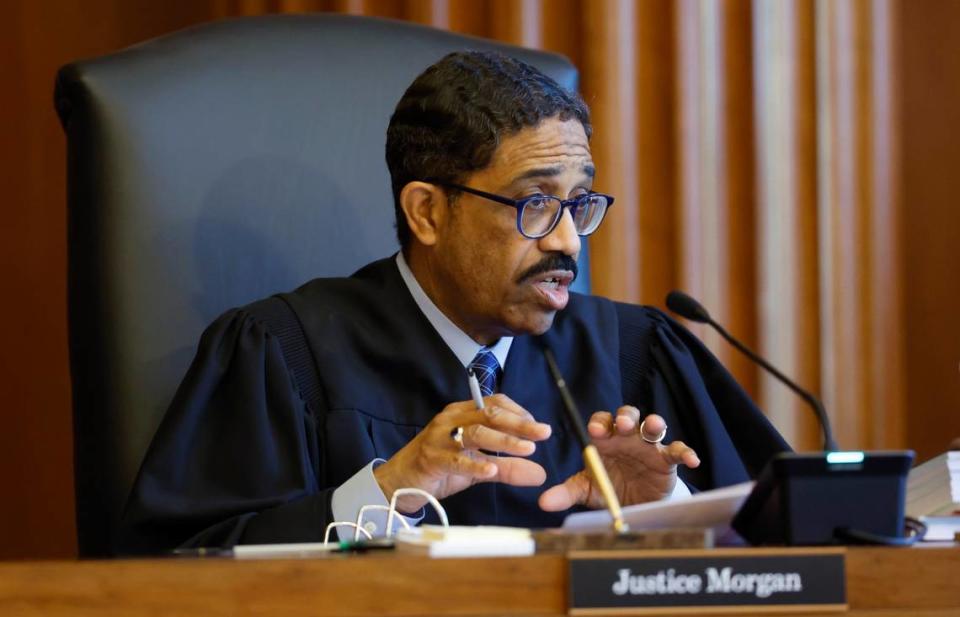
Three other Democrats who filed to run are Chrelle Booker, Marcus Williams and Gary Foxx.
The Republicans
▪ Mark Robinson
Robinson burst onto the state politics scene in 2020, when he won in a crowded Republican primary field for lieutenant governor after rising to fame via a viral pro-gun rights speech at a Greensboro City Council meeting.
He is the first Black lieutenant governor.
He is also known for making disparaging comments aimed primarily at LGBTQ+ people, particularly transgender people, and has criticized public school teachers for what he calls “indoctrination” of students. Robinson downplayed a series of antisemitic comments he has made on social media.
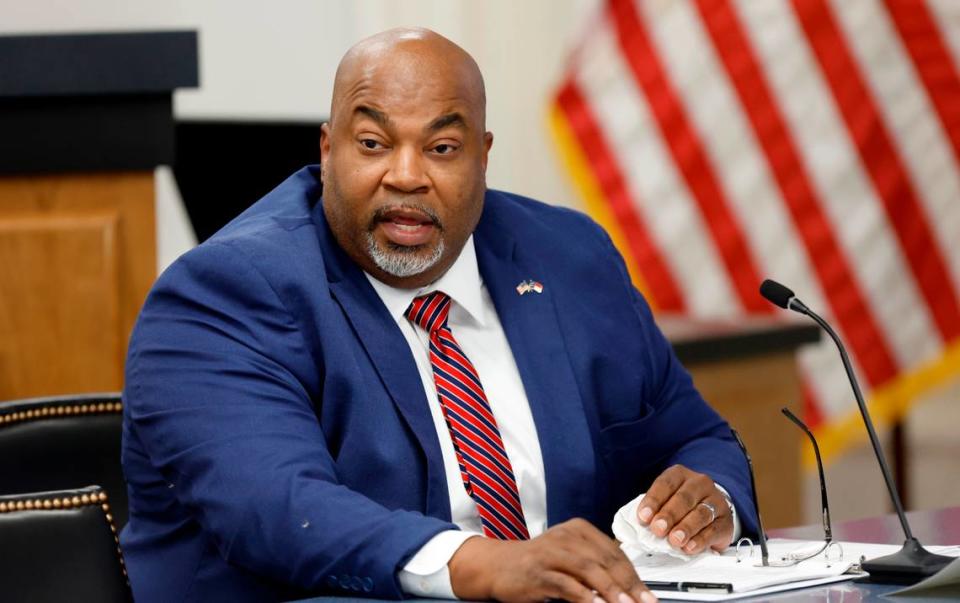
Senate leader Phil Berger has endorsed Robinson. Former President Donald Trump, also on primary ballots and facing charges related to his attempt to overturn the 2020 election, has expressed support for Robinson without making an official endorsement.
▪ Dale Folwell
State Treasurer Dale Folwell has spent decades in elected office, from the state House to state treasurer. He was endorsed by SEANC, the State Employees Association of North Carolina.
He has criticized Robinson for his divisive comments and his lack of attendance in carrying out the few responsibilities that a lieutenant governor has, including sitting on boards and presiding over the Senate.

▪ Bill Graham
Bill Graham, a third Republican candidate, is airing a television and digital attack ad about Robinson’s antisemitic comments.
Graham’s campaign is largely self-funded, as he announced at the same time he launched his run that he would spend $5 million of his own money on advertisements. Graham’s other ads airing statewide tout his stance on crime. Graham is a Salisbury attorney and businessman who has several real estate holdings.
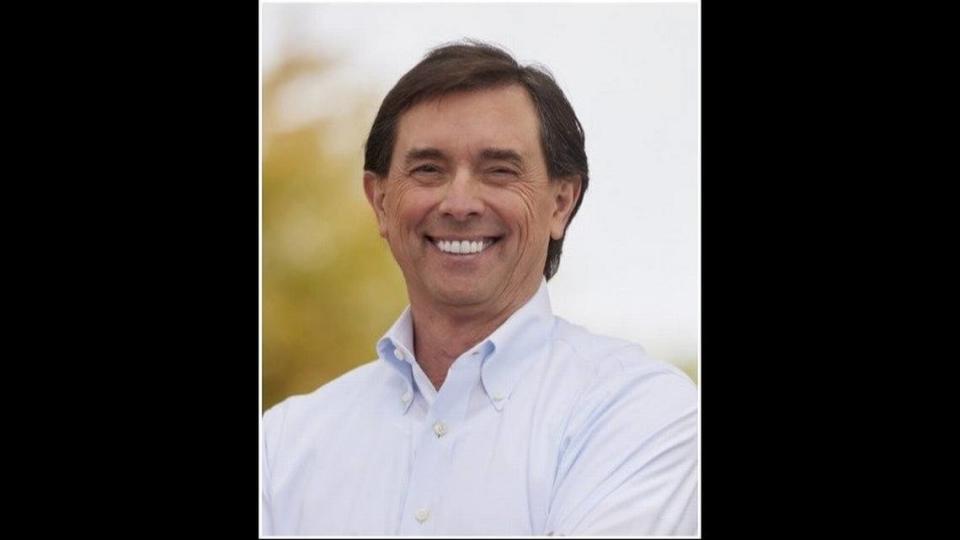
A third choice: Libertarians
Libertarians have two candidates in their primary: Mike Ross and Shannon Bray. Other political parties do not have a gubernatorial primary.
What the money shows
Stein and Robinson are the frontrunners by far when it comes to money. Campaign money is used for things like staff, consultants, signs and advertising.
Stein has $11.4 million in his campaign account, and has received $16 million in individual donations over the duration of his campaign. In comparison, Morgan’s campaign has just $32,000 on hand.
Robinson has $4.2 million on hand, after $8.7 million in individual donations. That’s far more than Republicans Graham, who has received about $113,000 in individual donations on top of his own money; and Folwell, who has $1.2 million on hand, with $1.1 million of that being a loan.
Robinson’s campaign has raised $9.9 million total this election cycle, and Stein has raised $16.7 million.
Candidate questionnaires
The N&O and The Charlotte Observer sent the same candidate questionnaire to all gubernatorial primary candidates. You can read their responses at newsobserver.com/voter-guide for those who have filled them out.
Bill Graham
Mike Morgan
Voting in the primary
If you are registered as an unaffiliated voter, which is the largest voting group in the state, you can pick which party’s ballot to vote. Otherwise, you vote your party’s ballot in the March 5 primary: Republican, Democrat or Libertarian.

